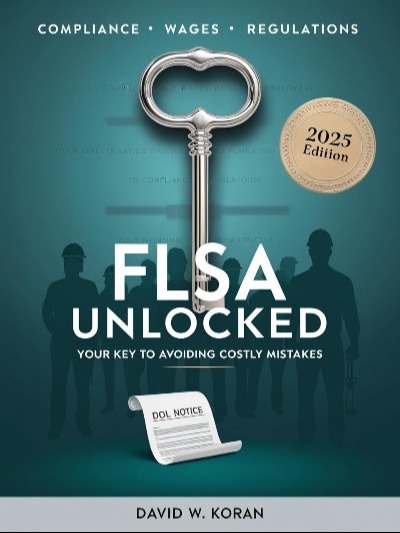Major Setback for Overtime Rule: Federal Judge Vacates DOL Salary Threshold Increases
In a significant development for employers nationwide, a federal judge has struck down the Department of Labor's (DOL) recent final rule regarding Fair Labor Standards Act (FLSA) overtime exemptions. This decision effectively voids both the scheduled 2025 increase and the earlier increase that took effect in July 2024, leaving the established salary thresholds in place.
Understanding the FLSA and Overtime Exemptions
The Fair Labor Standards Act (FLSA) is a cornerstone of American labor law, dictating minimum wage, overtime pay, and child labor regulations. The DOL, the agency responsible for enforcing the FLSA, conducts compliance audits and investigates potential violations to ensure workers are properly compensated.
A key aspect of the FLSA is the classification of employees as either "exempt" or "non-exempt." Non-exempt employees are entitled to overtime pay (1.5 times their regular rate) for any hours worked beyond 40 in a workweek. Exempt employees, typically those in executive, administrative, or professional roles, are not entitled to overtime if they meet specific criteria, including a minimum salary threshold.
The Vacated DOL Rule and Its Intended Impact
The DOL's recently vacated rule aimed to raise the minimum salary thresholds for exempt employees significantly. Had it remained in effect, the rule would have:
- Increased the standard salary level: From $844 per week ($43,888 annually) to $1,128 per week ($58,656 annually) on January 1, 2025.
- Increased the highly compensated employee (HCE) threshold: To $151,164 per year.
The rule also contained an increase that had taken effect in July of 2024, that would have also been invalidated by this judges decision.
The Judge's Decision and Its Implications
The federal judge's decision to vacate the DOL's final rule represents a major setback for the Department's efforts to expand overtime protections. The ruling effectively halts the planned increases and returns the salary thresholds to their previous levels.
What This Means for Employers and Employees
- Employers: For employers, this decision provides relief from the anticipated increase in payroll costs associated with the higher salary thresholds. Businesses will not be required to reclassify employees based on the now-voided rule. However, employers should remain vigilant and continue to monitor FLSA developments, as the DOL may pursue further rulemaking in the future.
- Employees: This ruling is a disappointment for many employees who might have benefited from the increased salary thresholds and overtime eligibility. Those employees will not see the salary increases, and will not gain overtime eligibility based on the vacated rule.
Looking Ahead
The future of FLSA overtime regulations remains uncertain. The DOL could appeal the judge's decision or initiate new rulemaking to address the issue. Employers and employees should stay informed about future developments related to FLSA overtime exemptions. It is always wise for employers to review their employee classifications and ensure compliance with existing FLSA regulations.
This ruling underscores the ongoing debate surrounding overtime regulations and the balance between protecting workers' rights and minimizing business burdens. As the legal landscape evolves, employers must remain adaptable and proactive in their approach to FLSA compliance.

